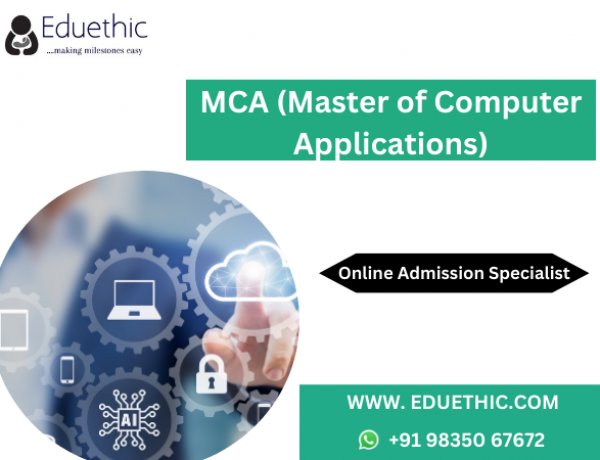A Comprehensive Guide to B.Tech Admission: Everything You Need to Know
Pursuing a Bachelor of Technology (B.Tech) degree is a popular choice for students aspiring to build a successful career in engineering and technology. With numerous universities and colleges offering B.Tech programs, the admission process can often seem overwhelming. This article outlines everything you need to know about B.Tech admission, from eligibility criteria to entrance exams and tips for success.
1. Eligibility Criteria for B.Tech Admission
Before applying for B.Tech, it's essential to meet the eligibility requirements set by the respective institutions. These typically include:
- Educational Qualifications: Candidates must have completed their 10+2 (Senior Secondary) education with a science stream, specifically with Physics, Chemistry, and Mathematics (PCM).
- Minimum Marks: Most institutes require candidates to score at least 50-60% in their 10+2 exams, depending on the institution.
- Age Limit: Some institutions may set an age limit, usually between 17 and 23 years. However, this varies across institutions.
2. Entrance Exams for B.Tech Admission
Most B.Tech programs require students to appear for entrance exams. These exams can be national, state, or university-specific. Some of the most common exams include:
- JEE Main: Joint Entrance Examination (JEE) Main is a national-level entrance exam for admission into B.Tech programs in top engineering colleges like NITs, IIITs, and other government-funded institutions.
- JEE Advanced: After qualifying for JEE Main, students can appear for JEE Advanced to get admission into IITs (Indian Institutes of Technology).
- State-Level Exams: Some states conduct their own entrance exams, such as Maharashtra’s MHT-CET, Tamil Nadu’s TNEA, and Uttar Pradesh’s UPSEE.
- University-Specific Exams: Many private universities have their own entrance tests. Examples include BITS Pilani's BITSAT, VIT's VITEEE, and SRM University's SRMJEEE.
3. B.Tech Specializations
B.Tech is available in a variety of specializations. When applying, it’s essential to choose the specialization that aligns with your interests and career goals. Some of the popular specializations include:
- Computer Science Engineering (CSE)
- Mechanical Engineering
- Civil Engineering
- Electrical Engineering
- Electronics and Communication Engineering (ECE)
- Information Technology (IT)
- Aerospace Engineering
- Biotechnology
4. Admission Process
The B.Tech admission process generally follows these steps:
- Step 1: Registration for entrance exams – Candidates must register for the entrance exam(s) of their choice.
- Step 2: Entrance exam – Appear for the exam and achieve the required cutoff score.
- Step 3: Counselling – After qualifying for the exam, candidates are called for counselling, where they are allocated seats in different institutions based on their rank and preferences.
- Step 4: Document Verification – Candidates must submit required documents like mark sheets, caste certificates, identity proof, etc.
- Step 5: Admission Confirmation – Once the documents are verified, candidates pay the admission fee and confirm their seat.
5. Top B.Tech Colleges in India
India is home to numerous prestigious institutions offering B.Tech degrees. Some of the top colleges include:
- Indian Institutes of Technology (IITs): IITs are the most prestigious institutions for engineering in India, with campuses in cities like Delhi, Bombay, Kanpur, and Madras.
- National Institutes of Technology (NITs): NITs offer excellent B.Tech programs and are highly respected across the country.
- Birla Institute of Technology and Science (BITS): BITS Pilani, BITS Goa, and BITS Hyderabad are renowned for their B.Tech courses.
- VIT University: VIT Vellore offers one of the most popular B.Tech programs in India, with a world-class campus and facilities.
- SRM University: SRM is another top private university offering B.Tech programs through its own entrance exam.
6. Key Documents Required for B.Tech Admission
Ensure that you have all the necessary documents for the admission process:
- Marksheet of Class 12 (10+2)
- JEE Main/JEE Advanced or any other entrance exam scorecard
- Passport-sized photographs
- Caste Certificate (if applicable)
- Aadhaar Card/Identity Proof
- Transfer Certificate (TC)
- Migration Certificate (if applicable)
7. Tips to Crack B.Tech Entrance Exams
Cracking competitive exams like JEE or state-level exams requires thorough preparation and strategy. Here are some tips:
- Start Early: Begin your preparation at least 1-2 years before the exam.
- Understand the Syllabus: Be well-versed with the syllabus and exam pattern for the entrance exams.
- Practice Regularly: Regular practice of problems in Physics, Chemistry, and Mathematics is key.
- Time Management: Learn to manage time effectively during the exam by taking mock tests.
- Focus on Conceptual Clarity: Build a strong foundation of concepts rather than rote learning.
8. Cost of B.Tech Studies
The cost of pursuing a B.Tech degree can vary significantly depending on the college. Government colleges tend to have lower fees compared to private institutions. On average:
- Government Colleges: ₹50,000 to ₹2,00,000 per annum.
- Private Colleges: ₹1,00,000 to ₹5,00,000 per annum.
Some top private institutions like BITS Pilani, VIT, and SRM charge higher fees but offer excellent infrastructure, research facilities, and placement opportunities.
9. Scholarships and Financial Aid
Many institutions offer scholarships to deserving candidates based on merit, financial need, or entrance exam performance. Some common scholarship options include:
- Government Scholarships: Government schemes such as the Central Sector Scheme of Scholarships for College and University Students.
- Institutional Scholarships: Many universities provide their own merit-based scholarships.
- Private Scholarships: Companies like Reliance, Tata, and others offer scholarships for B.Tech students.
10. Career Opportunities after B.Tech
After completing a B.Tech degree, graduates can pursue various career paths, including:
- Job Opportunities in Industry: Top engineering companies like TCS, Infosys, Wipro, Accenture, and Microsoft offer recruitment opportunities for B.Tech graduates.
- Higher Studies: Students can opt for higher studies like M.Tech, MS (abroad), or an MBA.
- Government Jobs: Engineering graduates can appear for exams like UPSC (Civil Services), GATE (for M.Tech and public sector jobs), or SSC (Staff Selection Commission).
- Entrepreneurship: B.Tech graduates with innovative ideas can also start their own ventures, especially in the technology sector.
11. Conclusion
B.Tech admission can be a competitive and challenging process, but with the right preparation, it is achievable. By understanding the eligibility requirements, entrance exams, specializations, and admission procedures, you can effectively navigate the journey to your B.Tech degree. Whether you're aiming for top-tier institutes or exploring specific fields like computer science or mechanical engineering, staying focused on your goals will help you succeed in securing admission to the right B.Tech program.
Are you ready to embark on your engineering journey? Start preparing today!



















